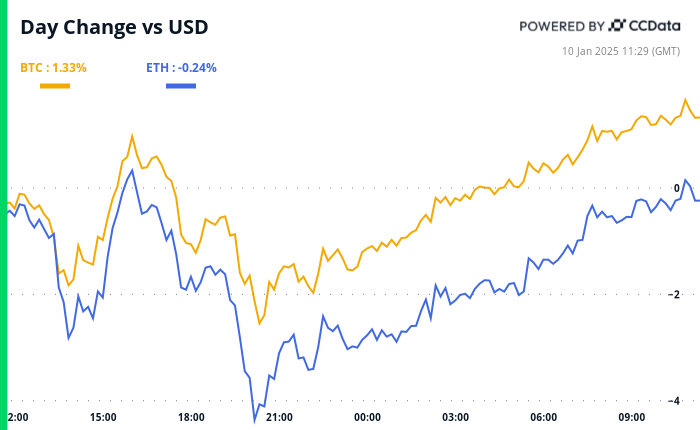
Last week was tough — the alarming series of crypto meltdowns continued with the failure of FTX, one of the biggest exchanges on the market. The crypto industry’s very own “Lehman Brothers moment” pushed regulators to react. United States Senator Cynthia Lummis, famous for her openly pro-crypto position, promised deliberate with her colleagues on whether there was market manipulation, while Maxine Waters, chair of the United States House of Representatives Financial Services Committee, pushed for additional federal oversight of crypto trading platforms and consumer protection.
European Parliament economics committee member Stefan Berger has compared the current situation with FTX to the 2008 financial crisis and said that the Market in Crypto Assets (MiCA) framework should prevent such crises in Europe. United States senators Debbie Stabenow and John Boozman have doubled down on their commitment to publishing a final version of the Digital Commodities Consumer Protection Act 2022.
Tom Emmer, the recently reelected Republican representative representing Minnesota’s 6th district in the United States House of Representatives, shocked the public with allegations that the Securities Exchange Commission (SEC) helped the FTX to obtain a “monopoly” in the U.S. Specifically, Emmer believes the SEC Chair Gary Gensler to be the one who was helping Sam Bankman-Fried and FTX “work on legal loopholes.” However, the lawmaker did not provide any evidence, claiming that his office is working on it.
The pro- and anti-crypto winners and losers from the U.S. midterms
Results from many election races for seats in the United States Senate and House of Representatives are still coming in, but a number of candidates who have expressed staunch views on digital asset regulation won on Nov. 8. Pro-crypto House incumbents including Minnesota Representative Tom Emmer and North Carolina Representative Patrick McHenry won re-election, as did crypto skeptic Brad Sherman in California. Democrat Tim Ryan lost on Nov. 8 to Republican J.D. Vance, who got more than 53% of the vote. Vance previously disclosed he held up to $250,000 in Bitcoin, while Ryan supported legislation aimed at simplifying digital asset tax reporting requirements.
Middle East, Asia and Africa blockchain association launches in Abu Dhabi
A new blockchain and cryptocurrency-focused association has been launched within Abu Dhabi’s free economic zone to further the development of blockchain and crypto ecosystems across the Middle Eastern, North Africa and Asia regions. The Middle East, Africa & Asia Crypto & Blockchain Association will aim to facilitate regulatory solutions, create commercial opportunities and invest in education to support industry growth. The association will be spearheaded by board chairman Jehanzeb Awan, founder of an international risk and compliance consulting firm headquartered in Dubai.
The Clearing House opposes CBDC in comments for U.S. Treasury
The Clearing House claims a central bank digital currency (CBDC) is “not in the national interest” of the U.S because the risks of the possible issuance outweigh the benefits. As the company, owned by 23 banks and payment companies, has written in its letter to a Treasury Department, “the foundational requirements in place to prevent criminal and illicit use of commercial bank money must be applied to a U.S. CBDC” should it become a reality. The Clearing House also called for a federal prudential framework with standards for digital assets service providers that are equivalent to those for depository financial institutions engaged in functionally similar activities.
Read More: cointelegraph.com









 Bitcoin
Bitcoin  Ethereum
Ethereum  Tether
Tether  XRP
XRP  Solana
Solana  Dogecoin
Dogecoin  USDC
USDC  Cardano
Cardano  Lido Staked Ether
Lido Staked Ether  TRON
TRON  Avalanche
Avalanche  Sui
Sui  Wrapped stETH
Wrapped stETH  Toncoin
Toncoin  Chainlink
Chainlink  Shiba Inu
Shiba Inu  Wrapped Bitcoin
Wrapped Bitcoin  Stellar
Stellar  Hedera
Hedera  Polkadot
Polkadot  WETH
WETH  Bitcoin Cash
Bitcoin Cash  LEO Token
LEO Token  Litecoin
Litecoin  Uniswap
Uniswap  Pepe
Pepe  Hyperliquid
Hyperliquid  Wrapped eETH
Wrapped eETH  NEAR Protocol
NEAR Protocol  USDS
USDS  Ethena USDe
Ethena USDe  Aptos
Aptos  Internet Computer
Internet Computer  Aave
Aave  Mantle
Mantle  Cronos
Cronos  POL (ex-MATIC)
POL (ex-MATIC)  Ethereum Classic
Ethereum Classic  MANTRA
MANTRA  Render
Render  Monero
Monero  Bittensor
Bittensor  Dai
Dai  Artificial Superintelligence Alliance
Artificial Superintelligence Alliance  Tokenize Xchange
Tokenize Xchange  Filecoin
Filecoin  Arbitrum
Arbitrum